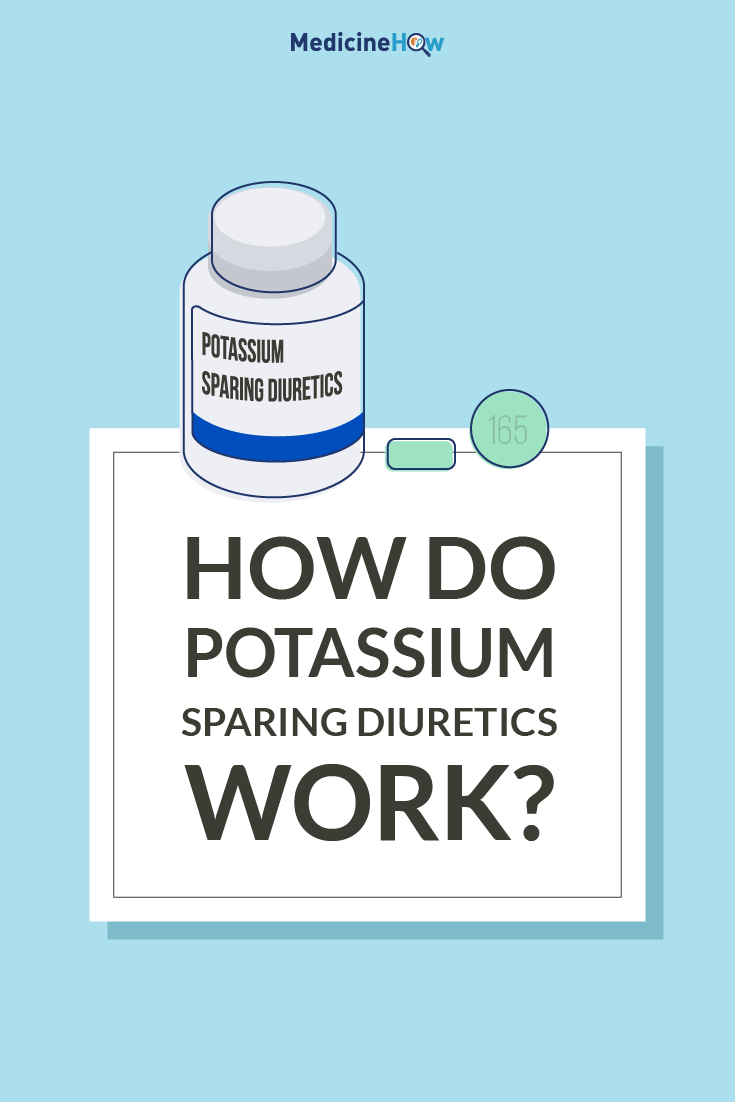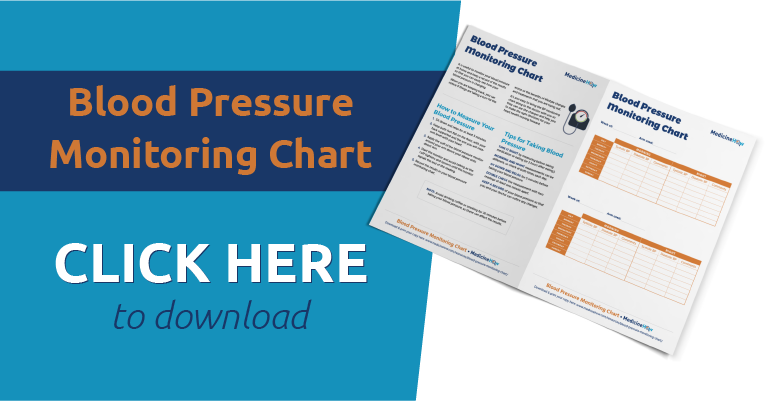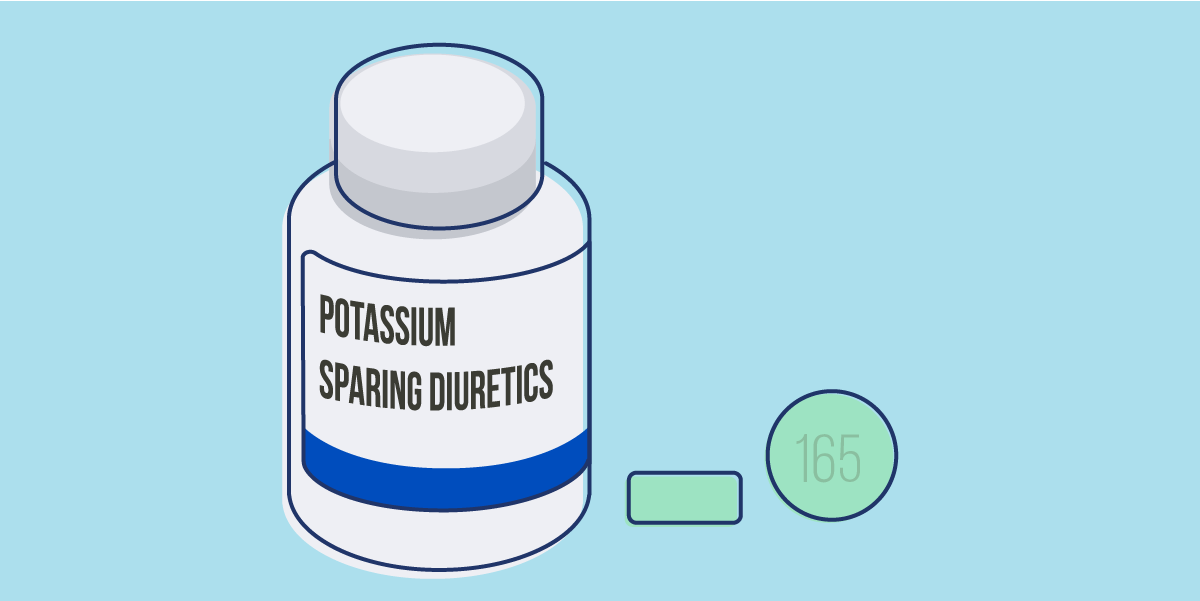
Potassium sparing diuretics are a class of drugs that work by changing way the nephrons in your kidneys produce urine. The blood sodium from being reabsorbed into the bloodstream in the distal renal tubule, which means more will be sodium will be excreted in your urine. As a result of this, more water is also excreted to “dilute” the sodium.
Unlike other types of diuretic drugs, potassium sparing diuretics do not lead to the excretion of potassium in the way they work. This means that they can be useful to counteract this effect of other drugs – they are often used together with hydrochlorothiazide – but there a higher chance of excess potassium in the blood, called hyperkalemia.
Potassium-Sparing Diuretic Drugs
 There are several different drugs that work in a similar way, known as potassium sparing diuretics. These drugs include:
There are several different drugs that work in a similar way, known as potassium sparing diuretics. These drugs include:
- Amiloride (e.g. Kaluril, Moduretic)
- Triamterene with hydrochlorothiazide (e.g. Hydrene)
- Spironolactone (e.g. Aldactone, Spiractin)
Each of these drugs in different (they are a unique chemical substance) but they all lead to an increase in the excretion of fluid and sodium in the urine but “spare” potassium allowing it to stay inside the body.
Amiloride and triamterene both help to increase the concentration of potassium, particularly if you have hypokalemia due to taking another diuretic, but amiloride also has an effect on the loss of magnesium.
Spironolactone has some other effects on the body, which explains why it also fits into another class of drugs called aldosterone antagonists. This is because it blocks the action of aldosterone in the body, which can be helpful in the treatment of some other health conditions.
What can they be used for?
Potassium sparing diuretics are often used in the management of hypertension or oedema, in combination with other types of diuretic drugs like thiazide diuretics.
This is because they have a weaker action as a diuretic, but they are very useful to balance the effect that thiazide diuretics have on certain electrolytes in the body, such as potassium and magnesium. These salts can often be excreted in the urine due to the action of thiazide diuretics, but potassium-sparing diuretics help to balance this and increase the concentration of potassium in the blood.
Spironolactone also works to block the effect of aldosterone in the kidneys. This means it can sometimes be used to help reduce the effects if you have too much aldosterone in your body, which is a condition called hyperaldosteronism. It can also help to manage oedema, liver cirrhosis and excessive hair growth in females, call hirsutism.
How do Potassium Sparing Diuretics work?
In a healthy person, the kidneys constantly filter the blood in the body. Most of the blood enters into the nephrons (everything except the “big” molecules like proteins) and then your body reabsorbs the things you still need, like nutrients and fluids, back into your blood. In the end, only the things your body doesn’t need make it to the end of the nephrons and are excreted in your urine.
Potassium sparing diuretics affect the absorption of sodium in the distal renal tubule in the kidneys, leading to more sodium and fluid being excreted in the urine. Water usually “follows” sodium in the body to “dilute” it – so if more sodium is excreted, the volume of the urine is greater.
Unlike other diuretics, potassium sparing diuretics do not increase the amount to potassium that is excreted in the urine. This is helpful, and they are often used with other types of diuretics to balance the concentration of potassium and make sure it doesn’t get too low.
Side Effects
Potassium-sparing diuretics can cause side effects in some people, particularly if taken in high doses.
Salt Imbalances
The most common side effect of potassium sparing diuretics comes directly from the name: “potassium-sparing” is great if the levels of potassium are too low, but it can be worrying if we end up with too much potassium, known as hyperkalemia. This can cause symptoms like weakness, fatigue and heart palpitations. If you take amiloride with other drugs that increase the concentration of potassium in the body, such as ACE inhibitors or angiotensin II blockers, you are more likely to suffer from hyperkalemia.
It can also upset other salts in the body and cause low sodium levels (hyponatremia) and low chlorine levels (hypochloremia). If you’d like to check that your levels are normal, you can ask for a blood test from your doctor.
If you think you may be affected, you can ask your doctor for a blood test to test the level of potassium and other salts in your blood to make sure.
Other Effects
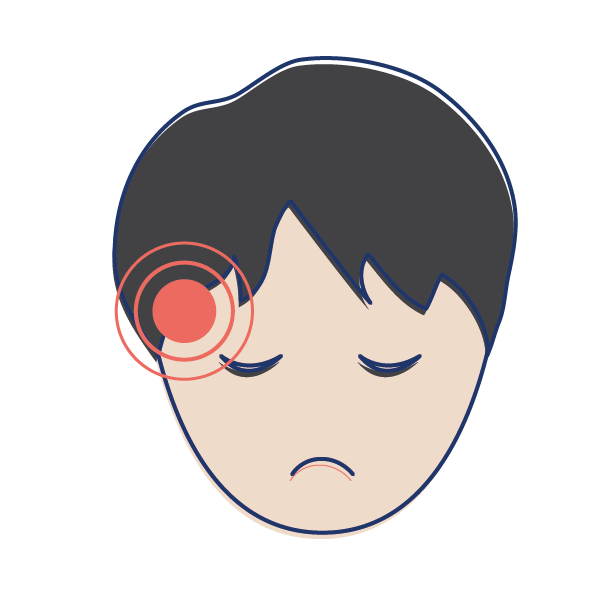 You may also notice a range of other effects such as:
You may also notice a range of other effects such as:
- Weakness
- Headache
- Nausea
- Vomiting Constipation
- Dizziness
- Muscle cramps
- Frequent urination
- Abnormal glucose levels
For the full list, you should see the medicine information leaflet..
Cautions
There are a couple of things you should be aware of before you start taking potassium sparing diuretics:
Hyperkalaemia
The main issue with taking amiloride is your current level of potassium. If you already have high levels of potassium, it doesn’t make sense for you to take amiloride because the action of the drug is going to make it go up even more.
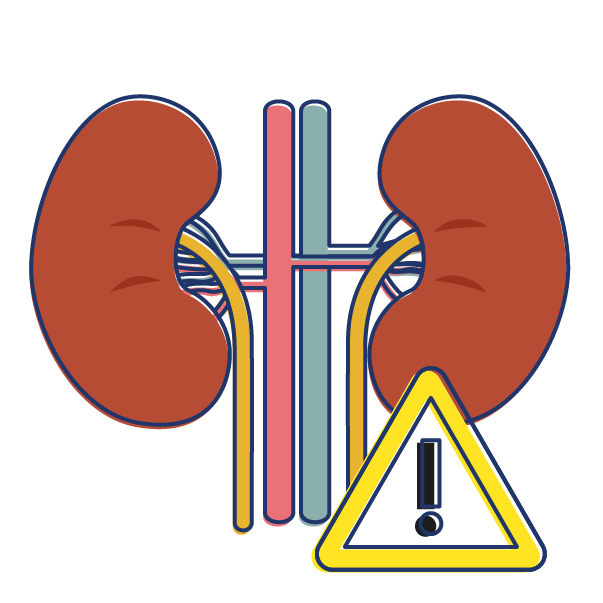 Renal Impairment
Renal Impairment
If you have weak kidneys or poor renal function, you are at increased risk of excessively high potassium levels if you take amiloride. For this reason, another drug is likely to be a better option.
Drug Interactions
When potassium-sparing diuretics are used with other drugs that alter the concentration of potassium in the body, there are often interactions that may occur, increasing the risk of hyperkalemia. This includes:
- ACE inhibitors + Amiloride drug interaction
- Sartans + Amiloride drug interaction
- NSAID + Amiloride drug interaction
Pregnancy and Breastfeeding
Potassium sparing diuretics should not be used by women who are pregnant or planning to become pregnant, as it may upset the balance of potassium and other salts in the blood and may harm the baby.
They can usually be taken while breastfeeding, although there is not much research to guarantee it safety. It is possible that mild production may decrease when taking a potassium-sparing diuretic.
Pin it!
